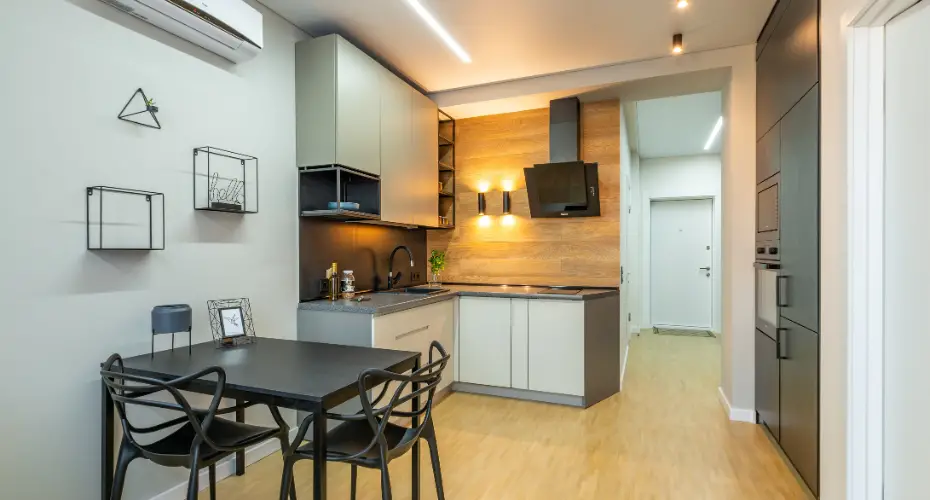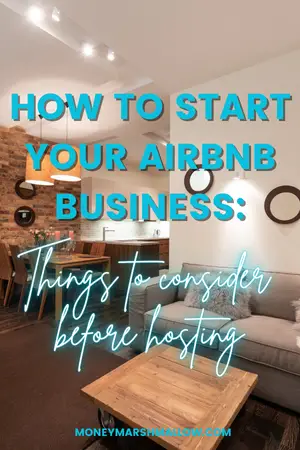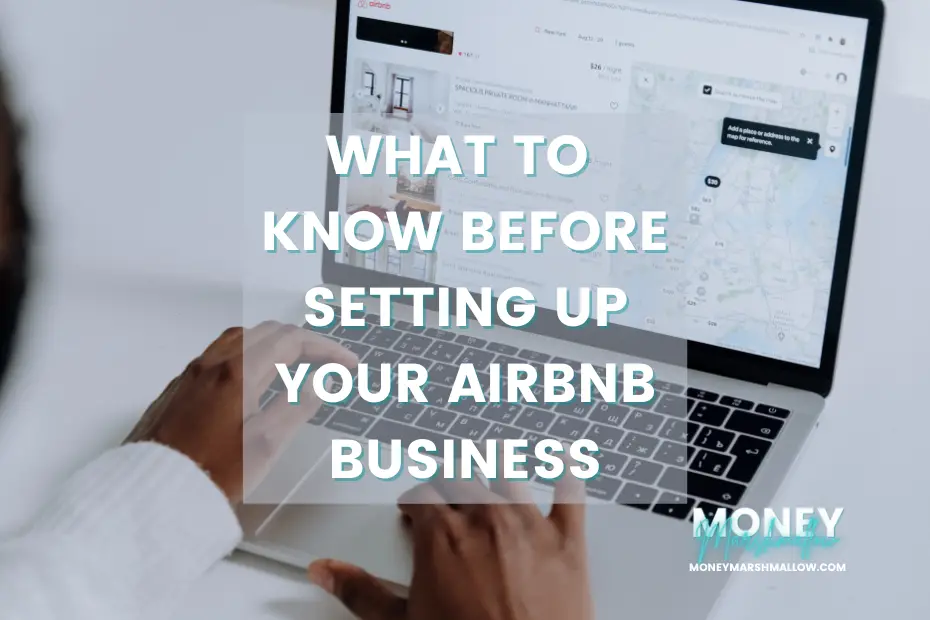Airbnb has emerged as a promising platform, allowing individuals and aspiring entrepreneurs to generate substantial income through short-term rentals. While owning a property can give you a head start, it’s also possible to launch an Airbnb business without owning any property. This has opened doors for anyone to become an Airbnb host. However, embarking on the journey of starting your own Airbnb business is a significant step that requires careful consideration.
To ensure a successful start in the world of Airbnb hosting, it’s vital not to underestimate the importance of grasping the basics. This article provides comprehensive coverage of the key factors and essential considerations necessary for starting an Airbnb business.
Things to consider before starting your own Airbnb business
Before venturing into your Airbnb business, it’s critical to weigh key factors that shape your success. From local regulations to different costs, thorough research sets the stage for a thriving venture, be it renting a spare room or an entire property. Let’s delve into some details on key aspects to know about.
1. Legal obligations to consider when setting up an Airbnb business
Like any business, there are legal obligations you must meet to operate your venture. It’s important not to overlook compliance with local and national laws. Therefore, make sure you do thorough research on the following obligations to ensure you’re on the right side of the law:
Tax obligations
As a new business owner, it can be easy to underestimate your Airbnb venture’s profitability and potential tax obligations. Depending on your earnings and other income sources, your tax responsibilities can vary.
Additionally, it is important to mention that in the UK, HMRC classifies most Airbnb businesses as furnished holiday lettings, which are subject to specific tax regulations. While this tax category typically offers more flexibility compared to buy-to-lets, it does come with specific eligibility criteria. One requirement is that the property must be commercially let as furnished holiday accommodation to the public for a minimum of 105 days per year.
Tax matters can be complex, so it is essential to conduct thorough research or seek guidance from an accountant before starting your Airbnb business. An accountant specialising in short-term rentals can offer valuable insights and help you maximise your tax advantages as an Airbnb host. If you are unsure of where to start, online platforms such as Unbiased can match you to a tax advisor suitable for your needs and offer your first consultation for free.
Local laws and other regulations for short-term rentals
When setting up an Airbnb, ensure you understand local laws and regulations specific to the area. Each city and country have varying requirements for Airbnb hosts. For instance, some cities may require hosts to be residents or have strict rules on how many days a year short-term rentals are allowed. In London, for example, you are required to have planning permission if you are looking to list your property for more than 90 days a year. Listing for less than 90 days or renting out a portion of your home where you like exempts you from seeking permission.
Additionally, if you want to Airbnb a rented or leasehold property, carefully review the terms of your agreement to determine if there are any limitations regarding subletting your property.
It’s important to be aware of tailored laws and regulations applicable to your location and home, ensuring compliance and understanding what is permitted. Conducting in-depth research will help you navigate the specific requirements for Airbnb hosting.
Airbnb insurance
When operating a property for Airbnb, it’s important to consider the insurance coverage required. If your property is currently insured under residential circumstances, it will likely need to be updated to reflect its commercial use. In addition to your own insurance, Airbnb offers Aircover to hosts, which includes:
Host damage protection: This coverage safeguards against property damage, providing up to $3 million in protection for any breakages or damages.
Host liability insurance: With coverage of up to $1 million, this insurance protects hosts in the event of legal responsibility for guest harm, including theft or damage to their belongings.
Airbnb explicitly states that Aircover is “not a substitute for having your own insurance”, so consider the following:
Buildings insurance: This type of insurance typically covers the physical structure of your property, including the bricks and mortar.
Contents insurance: This insurance provides coverage for your personal belongings, protecting them against loss, theft, or damage.
Home emergency cover: This coverage can be beneficial if you require emergency assistance for your Airbnb property, such as dealing with a broken boiler.
Accidental damage cover: With this coverage, your possessions are protected in the event of accidental damage.
Liability cover: This coverage helps cover the costs of compensation if a guest sustains an injury while staying at your property.
Loss of booking income: This coverage can be helpful if you can’t operate your Airbnb due to an event, such fire or a burst pipe.
Property mortgage
If you own your property outright, without a mortgage, this aspect may not be a concern for you. However, if you plan to use a property with an existing residential mortgage for short-stay accommodation, it’s crucial to check your mortgage terms. Inform your lenders about your intention and inquire whether it is permitted. While some residential mortgages may allow short lets, it’s important to consult with your lender directly to obtain specific information.
It may come as a surprise, but it’s worth noting that numerous buy-to-let lenders do not permit short-term tenancies. Alternatively, you can explore the option of obtaining a holiday-let mortgage, depending on the location. To obtain more specific information, consult with your lender or a mortgage advisor.

2. Costs to consider when setting up an Airbnb business
Setting up and running an Airbnb requires careful financial planning to ensure a smooth and profitable operation. In this section, we will explore the various costs you should consider before embarking on your Airbnb journey.
Start-up costs
When starting an Airbnb, the initial investment can differ significantly based on the type of listing. If you’re renting out your furnished spare room, the expenses will be considerably lower compared to setting up a new holiday rental property. However, there are still some start-up costs to keep in mind, including:
- Refurbishment and redecoration expenses
- Furnishing and equipping the property
- Professional photography services
- Initial cleaning and maintenance supplies
- Security and safety measures, such as locks and alarms
Running costs
Here are just a few of the most important costs you need to calculate and set budgets on for your Airbnb business:
- Mortgage or rent: Likely the most significant cost to consider when setting up an Airbnb business is the mortgage or rent of the property.
- Utility bills: Utility bills can be costly and include anything from your gas and electricity to the cost of the WIFI.
- Council tax: Depending on your area and the type of property, council tax will differ.
- Cleaning services: You may be surprised how much cleaning can cost when running your Airbnb. However, this is not something you should cut corners on. Cleaning is one of the most imperative aspects of running a successful Airbnb.
- Insurances: As we have touched on, insurance will be a monthly or yearly expense that needs to be factored into your overall costs.
- Maintenance: It is advisable to allocate a portion of your monthly profits for maintenance expenses. Unexpected emergencies may arise, requiring immediate repairs that come with a price tag.
- Extra additions: To thrive in a highly competitive market, it’s important to exceed guest expectations. This entails going the extra mile to provide unique experiences. For instance, you can surprise guests on special occasions with personalised decorations.
- Time cost: The initial stages of your Airbnb business demand significant time investment for long-term success.
3. Market research before starting an Airbnb
Furthermore, it is essential to have a current grasp of the market dynamics before embarking on your Airbnb business venture. In addition to proximity to local attractions and tourism, there are various methods to gauge the demand for short stays in the area. Consider the following factors:
Check competitors
The most important element of your market research would be to check your competitors. It can be as simple as checking the other Airbnb listings in your area. Review the quality of their property, and how booked in they are for the next few months. You can also check their reviews to see what guests especially liked.
If people do not seem to be booking stays in your property area, you might not find success through Airbnb. However, don’t be automatically discouraged by the absence of competing Airbnb listings in your area; it doesn’t necessarily indicate low demand. In fact, it can work in your favour. Airbnb isn’t solely for tourists but also caters to individuals seeking temporary accommodations for work or transitional periods. So, keep an open mind and explore untapped opportunities for success.
Check occupancy
There are some services and applications that show the occupancy rate for Airbnb in your local area. Knowing the average occupancy rate for your local area is important, as it will help you understand the occupancy you need to break even with all of the running costs.
Final thoughts
In conclusion, starting an Airbnb business can offer a profitable venture even without prior experience. However, success goes beyond owning a suitable property. It requires understanding the local demand, fulfilling legal obligations, and preparing for unforeseen circumstances. By building a solid foundation and continuously learning from your experiences, you can position yourself ahead in the game and pave the way for a successful journey in the world of Airbnb hosting. So, seize the opportunity, embrace the challenges, and embark on your path to learning and earning!

This article may contain affiliate links. If you sign up through these links, we may earn a small commission at no extra cost to you, supporting our content creation.
